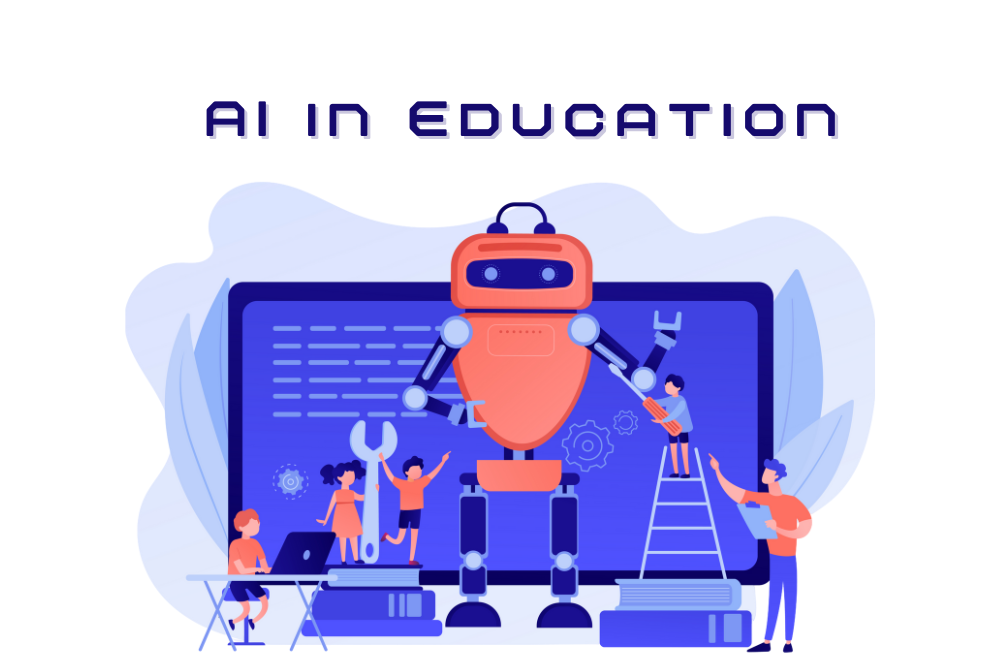
Introduction
Jolly Phonics is a well-known method in early childhood education that helps young learners master phonics, the foundation of literacy. Using a multisensory approach, it teaches children to connect sounds with letters and blend them into words, building essential reading and writing skills.
With advancements in technology, AI is transforming how children learn. AI tools like ChatGPT can make phonics learning more interactive, personalized, and engaging. Educators from the BEST Teacher Training Institute in Mumbai Borivali can leverage AI to innovate in the classroom, enhancing early literacy development. This article explores how AI and ChatGPT can revolutionize Jolly Phonics instruction for young learners.

Understanding Jolly Phonics
Jolly Phonics is an instructional method focused on teaching young learners the sounds of the English language, known as phonemes. The program emphasizes five core skills: learning the letter sounds, letter formation, blending sounds to read words, identifying sounds in words (segmenting), and tricky words. By focusing on these principles, Jolly Phonics aims to give children a solid understanding of the alphabetic code, improving their reading and writing fluency.
The benefits of Jolly Phonics for young learners are numerous. Research has shown that phonics-based instruction can significantly improve children’s reading comprehension, spelling, and vocabulary acquisition. Moreover, its multisensory teaching approach—using visual, auditory, and kinesthetic methods—makes learning more engaging, catering to different learning styles. This holistic approach is especially effective in ensuring that children not only learn to decode words but also enjoy the process of learning to read. Institutes such as the BEST Teacher Training Institute in Mumbai Borivali, Best ECCEd Teacher Training Institute in Mumbai Borivali, Best Jolly Grammar Teacher Training Institute in Mumbai Borivali, and Best Jolly Phonics Teacher Training Institute in Mumbai Borivali provide specialized training to equip educators with these essential skills, enabling them to implement effective phonics instruction in their classrooms.

The Role of AI in Education
Artificial intelligence (AI) refers to the development of computer systems that can simulate human intelligence, performing tasks like problem-solving, learning, and adapting to new information. In education, AI is making waves by offering innovative solutions to personalize learning, provide real-time feedback, and automate administrative tasks.
One of the most promising aspects of AI in education is its ability to tailor learning experiences to individual students. Traditional classroom environments often follow a one-size-fits-all model, but AI enables educators to create customized learning pathways based on each student’s strengths, weaknesses, and pace. In the context of phonics learning, AI can adapt to the unique needs of each child, ensuring they receive the support and resources necessary to succeed.
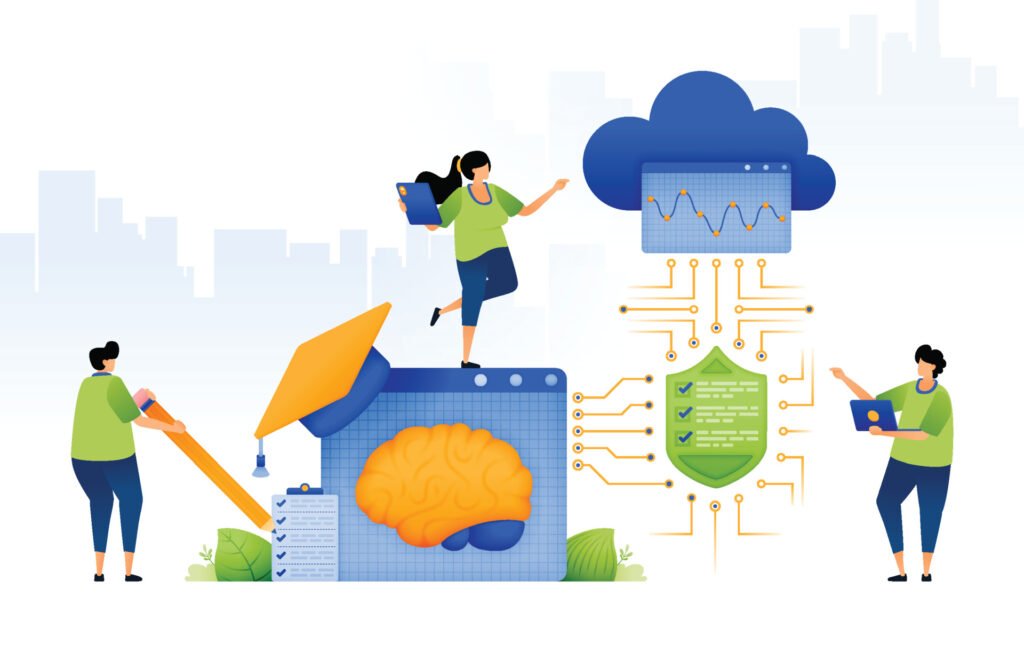
How AI and ChatGPT Can Aid Children in Learning Phonics Interactively
Personalized Learning
AI has the power to revolutionize how phonics is taught by creating personalized learning experiences for each student. Every child learns at their own pace, and AI can adjust lessons based on individual progress. For instance, if a child struggles with a particular sound or letter combination, the AI system can provide additional exercises and support until the child masters that concept. Similarly, if a child excels in certain areas, AI can offer more challenging content to keep them engaged and motivated.
Personalized learning is especially beneficial for young learners because it helps prevent frustration and ensures that children are neither overwhelmed nor bored. This tailored approach allows each child to thrive, building their confidence and reinforcing their phonics skills.
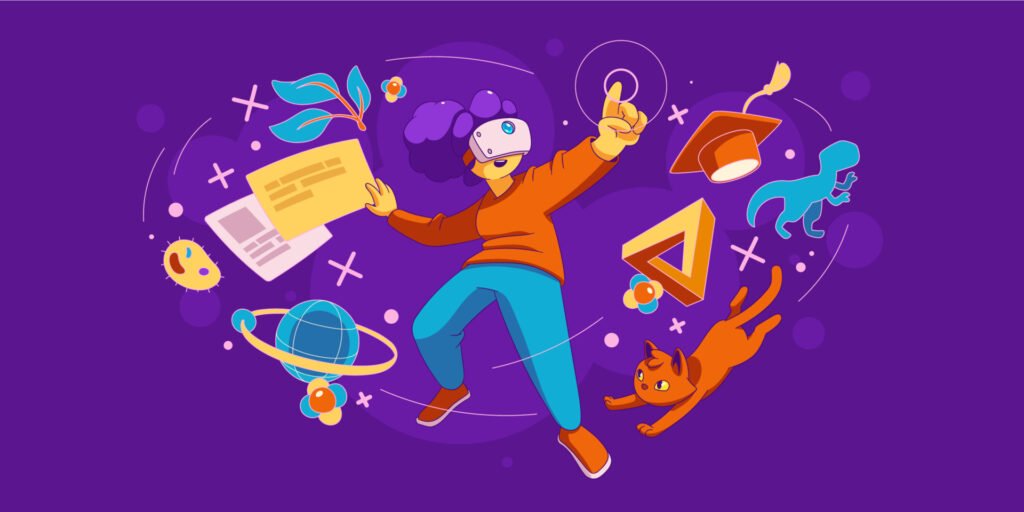
Interactive Activities
One of the most exciting possibilities with AI and ChatGPT in Jolly Phonics learning is the creation of interactive activities. Through AI-driven platforms, children can engage in phonics games, quizzes, and storytelling exercises that make learning fun and immersive. For example, ChatGPT can simulate a conversation with a character that encourages the child to identify letter sounds or blend them to form words. These activities can be designed to challenge children while also holding their attention with dynamic, real-time engagement.
Interactive phonics games, like sound-matching challenges, or storytelling exercises that involve identifying tricky words, provide a rich, multisensory learning experience. By incorporating such engaging methods, AI ensures that children remain excited about learning while reinforcing core phonics principles.
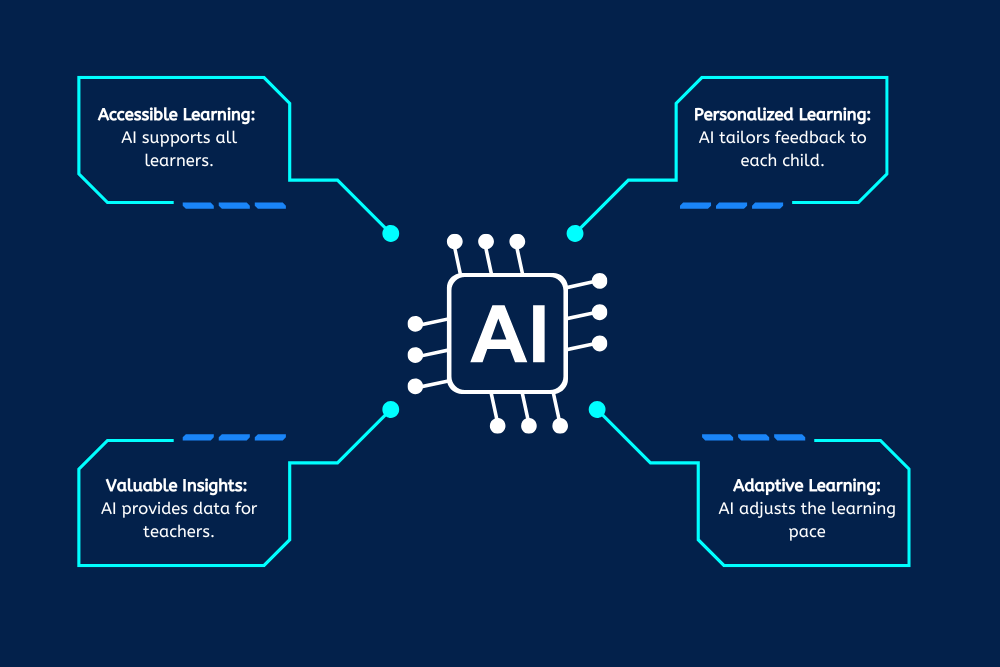
Immediate Feedback
Another significant advantage of using AI in phonics learning is the ability to provide immediate feedback. In a traditional classroom, it can be difficult for teachers to give instant, individualized responses to every child’s progress. AI, however, can instantly evaluate a child’s performance and offer constructive feedback. For instance, if a child pronounces a word incorrectly or selects the wrong letter sound, AI can instantly correct them, helping the child learn from their mistakes in real-time.
Immediate feedback is crucial in the learning process as it enables children to recognize errors and correct them on the spot. This helps reinforce correct phonetic understanding and prevents children from developing poor reading habits.
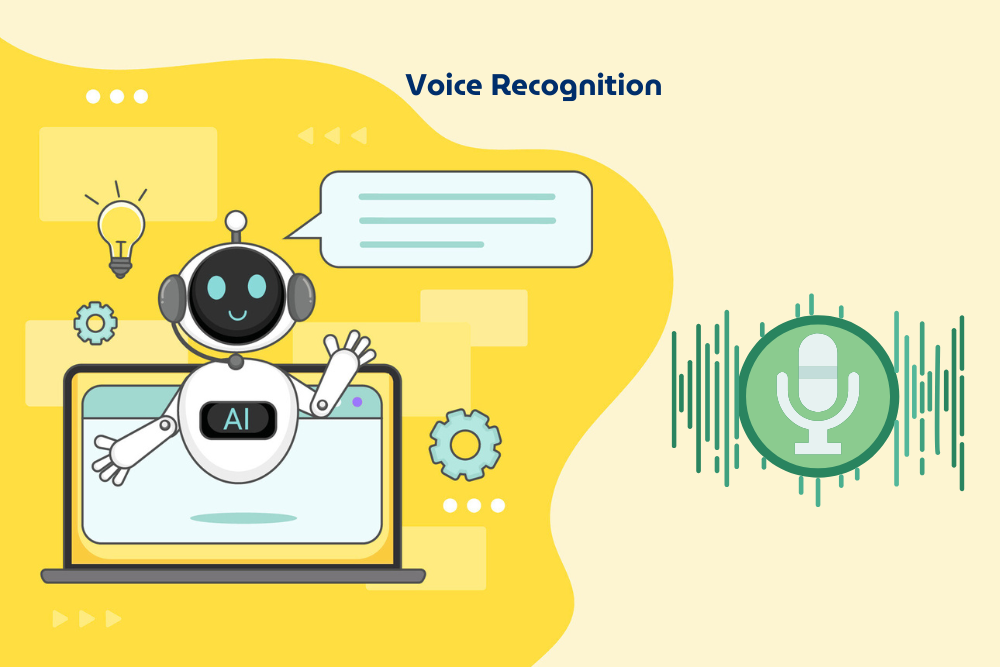
Voice Recognition
Voice recognition technology, integrated with AI systems, adds another layer of interactivity to phonics learning. With this feature, children can practice saying letter sounds, blending them, and forming words, while the AI system listens and provides feedback. This real-time pronunciation practice helps improve both speaking and listening skills, essential components of early literacy.
Voice recognition allows children to practice at their own pace and in a supportive environment, making phonics learning more engaging. Moreover, it encourages young learners to experiment with language, boosting their confidence as they improve their pronunciation and listening comprehension.
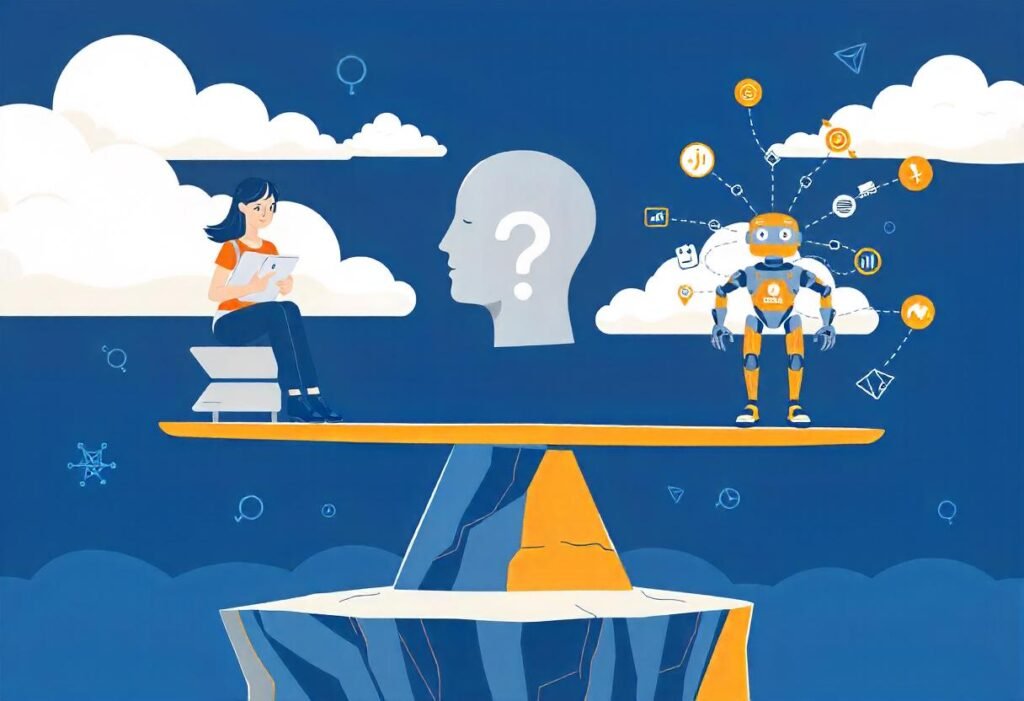
Challenges and Considerations
While AI offers many benefits for phonics learning, there are also challenges and considerations to keep in mind. One potential limitation is access to technology. Not all schools or families have the resources to provide AI-based tools to their children, which can lead to inequities in learning opportunities. Additionally, while AI can personalize learning, it cannot replace the critical role of human teachers, who provide emotional support, motivation, and creativity in the classroom.
There are also ethical concerns regarding the use of AI in education. Privacy issues related to the collection and use of data must be addressed to ensure that children’s information is safeguarded. Educators and developers must prioritize ethical considerations when implementing AI tools to protect children’s safety and well-being.

Conclusion
AI and ChatGPT have the potential to revolutionize Jolly Phonics learning by offering personalized, interactive, and engaging educational experiences. Through tailored lessons, interactive activities, immediate feedback, and voice recognition, AI can significantly enhance phonics instruction for young learners, helping them master the foundational skills of reading and writing.
Despite challenges, the integration of AI into early literacy education opens up new possibilities for making learning more accessible and effective. By embracing AI, educators can provide children with a more dynamic and individualized learning experience that fosters a lifelong love for reading. The future of early literacy education is bright, with AI at the forefront of this exciting transformation.
By adopting such innovative tools, institutes like the BEST Teacher Training Institute in Mumbai Borivali, Best ECCEd Teacher Training Institute in Mumbai Borivali, Best Jolly Grammar Teacher Training Institute in Mumbai Borivali, and Best Jolly Phonics Teacher Training Institute in Mumbai Borivali can empower educators to deliver cutting-edge literacy education that prepares young learners for a successful future.


